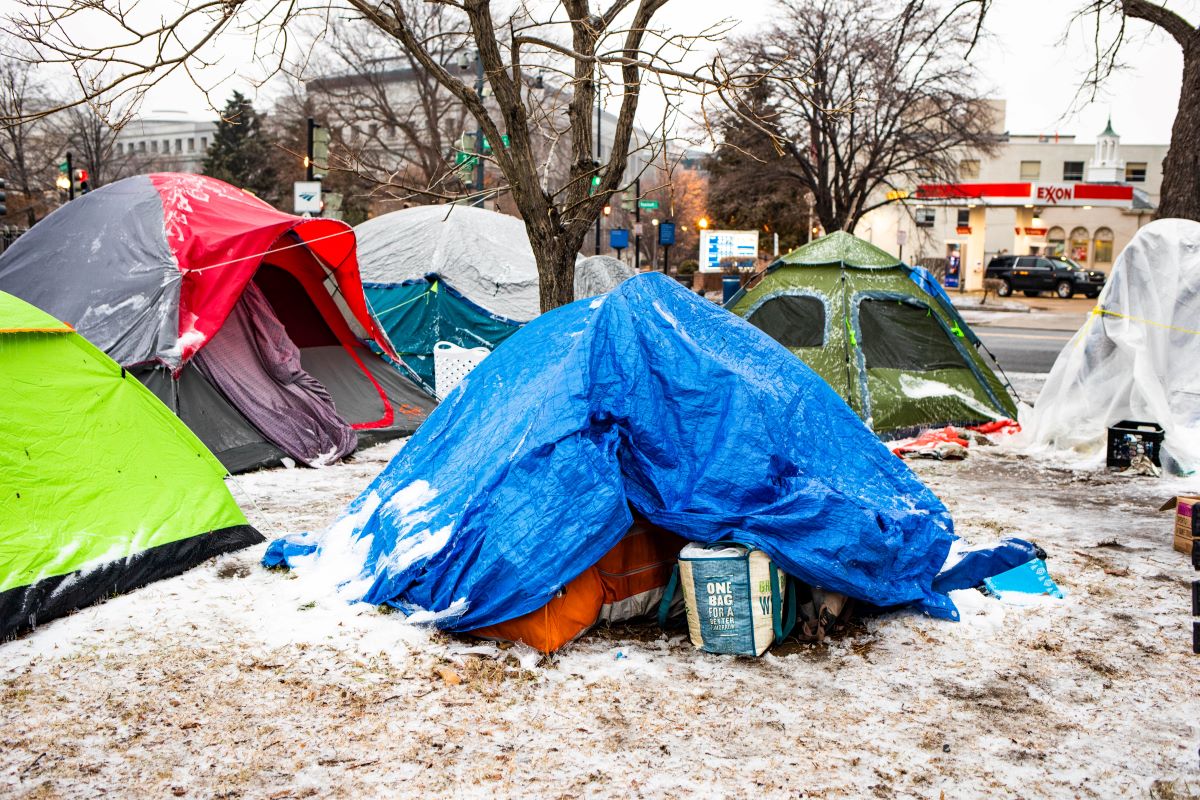The latest annual survey of mayors across the U.S. by Boston University and Community Solutions revealed that most don’t believe they have any control over addressing homelessness in their cities.
The 2021 Menino Survey of Mayors is the first survey of its kind to delve into homelessness, including each mayor’s perspective on their role in addressing it. Its findings are based on the anonymous responses of 126 sitting mayors.
“Mayors have played a critical role in helping communities reduce the number of people experiencing homelessness,” said Rosanne Haggerty, president of Community Solutions, a housing advocacy nonprofit.
Haggerty added that mayors could positively impact homelessness in their cities by creating “measurable, community-wide goals, and comprehensive real-time data” that allows progress to be tracked in real-time.
According to the survey, more than 70% of mayors said they perceive themselves as being held accountable by voters for their actions concerning homelessness. But more than 81% of respondents also said that homelessness itself is out of their control. These views were consistent across cities with high and low costs of housing.
When broken down by geography, mayors in the northeast were the most pessimistic about their control over homelessness. Only seven percent of these mayors said they have “a lot” of control over homelessness, compared to the overall average of 19 percent.
Mayors often cited inadequate data, insufficient staffing, and opposition to building new homes and shelters as the most significant impediments to reducing homelessness.
But the survey also identified an additional barrier, one that seems self-imposed. More than 60 percent of mayors do not define policy successes by reducing the number of people experiencing homelessness, the survey said.
When asked to define a successful homelessness reduction policy, only 40 percent of mayors explicitly outlined a goal for reducing homelessness. For comparison, 42 percent of mayors cited “better housing” while another 16 percent cited “better social services” as the goals of their homelessness reduction policies.
“Homelessness is a complex and multifaceted problem that requires a coordinated and comprehensive response and much more funding from the state and national level,” said Madison, Wisconsin Mayor Satya Rhodes-Conway. “We need to help people move into decent and stable housing, while also working toward effective, long-term solutions—including building more permanent, affordable housing options and investing in initiatives that combat underlying inequities in our community.”
Mayors across the country also cited staffing issues and coordination between the diversity of agencies involved in serving people experiencing homelessness as impediments to reducing homelessness overall.
Just over 25 percent of respondents said they have no staff dedicated to addressing homelessness, while another 22 percent rely on the police department. For comparison, just 14 percent of mayors said they have dedicated staff working in their housing department.
The survey said these results “[underscore] the outsized role police may play in a city’s homeless response.”
The lack of dedicated government staff creates coordination issues between the different agencies involved in a city’s homelessness response system. Mayors said improving coordination between these entities is a “paramount” concern, with 67 percent adding that they lean on their Continuums of Care, local nonprofits, the police, public housing authorities, and individuals with a lived experience of homelessness to set city policy.
“Ultimately, this requires political will at all levels of government,” Rhodes-Conway said.
Several mayors also expressed optimism about addressing homelessness in the future. Nearly 80 percent of mayors said funds flowing from the federal American Rescue Plan and other legislation will help them accomplish “transformative aims.”
One-in-five of these respondents plans to use the funds to address homelessness. Another 15 percent of respondents will use them to bolster their social services and housing, respectively.
In response to the survey, Community Solutions shared recommendations to help mayors improve their homelessness response systems:
- Establish a “shared aim” around ending homelessness at the population level
- Help their communities collect accurate and reliable data
- Appoint a lead agency to address the issue locally and shape social policy
- Hold lead agency accountable for meeting identifiable goals
How You Can Help
Now is not the time to be silent about homelessness. According to data from HUD, homelessness across the country has increased by five percent since 2016. At the same time, the latest Point in Time Count shows the number of people experiencing unsheltered homelessness is now greater than those in shelters for the first time since HUD began the survey in 2004.
Contact your state and federal legislators and tell them you support expanding the federal response to homelessness. Tell them you also support funding and building safe and affordable housing options for our most vulnerable neighbors.











